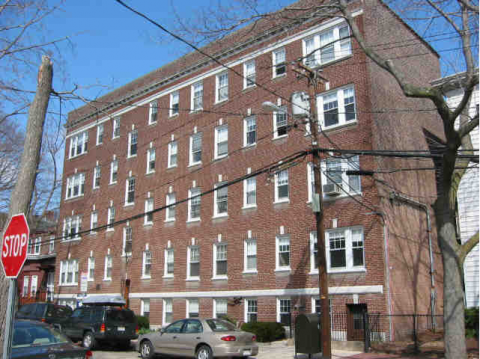
Money in Politics: A Matter of Perspective in Cambridge
Recently some of our City Councillors have been complaining about the effect of money in local politics. The topic, of course, was Terry Ragon’s financing of a successful petition to repeal the recent zoning re-write about commercial signs. In this case, one Cambridge resident was wealthy, clever, and motivated enough to get a piece of legislation which he found offensive removed. Several of our Councillors are pretty steamed about it. In years of watching our Council at work, I have never seen them get so worked up.
It’s true that the professional signature gatherers were paid by the signature, and did not usually give an accurate description of the zoning in question. However, one object of the drive was to publicize the issue and give the voters a chance to consider the issue and decide for themselves. That would have assured a much more thorough and factual discussion of the provisions of the zoning change. It would have also cost us a lot of money to either hold a special election ($175,000) or include the referendum on next year’s regular ballot ($15,000). The Council prevented that and repealed the zoning amendment. One councillor (Toomey) was in favor of holding a special election, and while I don’t think he would have gotten the result he wished for, I applaud the sentiment of letting the people decide. I would have gone for the discount plan, even though it would be along with their re-election efforts.
Well that’s a brief account of one instance of money in our elections. There’s another zoning petition that illustrates another instance of money in Cambridge politics. Chestnut Hill Realty has recently filed a petition to change the zoning ordinance to allow them to add units in three of its rental properties in the city. Why would they want to do this? Well, just read the petition. They want “to allow for the creation of reasonably priced studio or 1-bedroom apartments” and create “Workforce Housing” “for the elderly, local workers and students.” It is “in the public interest to permit the creation of additional units under circumstances which promote the protection of the environment and preserve the quality of life of the neighborhood [and] promote the maintenance of older residential buildings.”
What could be better? Affordable housing (studios and one-bedrooms) for workers, elderly, and students that will save the earth, save older buildings, and bring nirvana to the neighbors! How is it going to work, though?
Before I get to that, I’d like to point out that the petitioners themselves have been putting money into our political equation. Chestnut Hill Realty executives Marc Levin and Peter Poras (and spouse) have made generous contributions to the campaigns of two Councillors. Over the past two elections, Chestnut Hill Realty execs and family members have given $2500 to one and at least $8000 to another according to the Office of Campaign and Political Finance.
So, we have money on both sides of the rail that divides the Sullivan Chamber. I think there is an important difference in the two cases, though. In the petition case, the voters of Cambridge might have been able to vote on the outcome of this piece of legislation. In the Chestnut Hill Realty case, we don’t get that option. We have to rely on the impartiality and better judgment of our elected representatives. I can’t claim that there is a direct relationship between this money and how the Councillors will vote on the donor’s self-serving zoning change, but you can’t deny the possibility. Here’s the dilemma. If they don’t vote against the amendment there’s the appearance of favoritism. Simply vote against it, then they won’t be doing what they were elected to do. The obvious solution would be to have these Councillors recuse themselves from any debate and votes on this to avoid the conflict of interest.
What would Chestnut Hill Realty gain if their amendment is enacted? My reading of the proposal gives them nineteen new apartments which would generate around $325,000 per year.
The object of zoning is to make our city better, so what do we get out of it? I paraphrased the language in the amendment but is it true? They call it “reasonably priced” “Workforce Housing” There is no restriction on rent, which starts at $1340 for these buildings. At minimum wage, you make $1200 monthly. Will it “promote the protection of the environment”? You will be able to park your bicycle and walk to a bus. Will it “preserve quality of life in the neighborhood”? By generating more traffic and parking it doesn’t seem so. Will it “promote the maintenance of older residential buildings”? If they aren’t maintaining, should we let them operate here at all?
Finally, if this is so great, wouldn’t it already be allowed? Population density affects quality of life. Hence zoning. There are good environmental arguments that added density reduces eco-impact, but in already dense urban areas, it has to be designed very carefully to prevent the negatives.
Nineteen more apartments won’t drastically affect Cambridge, but this blatant green (and blue) washing with a heaping side of conflict of interest is something up with which we should not put.
This op-ed was simultaneously published at NeighborMedia Cambridge.

